Met News
Minister praises degree apprenticeships programme
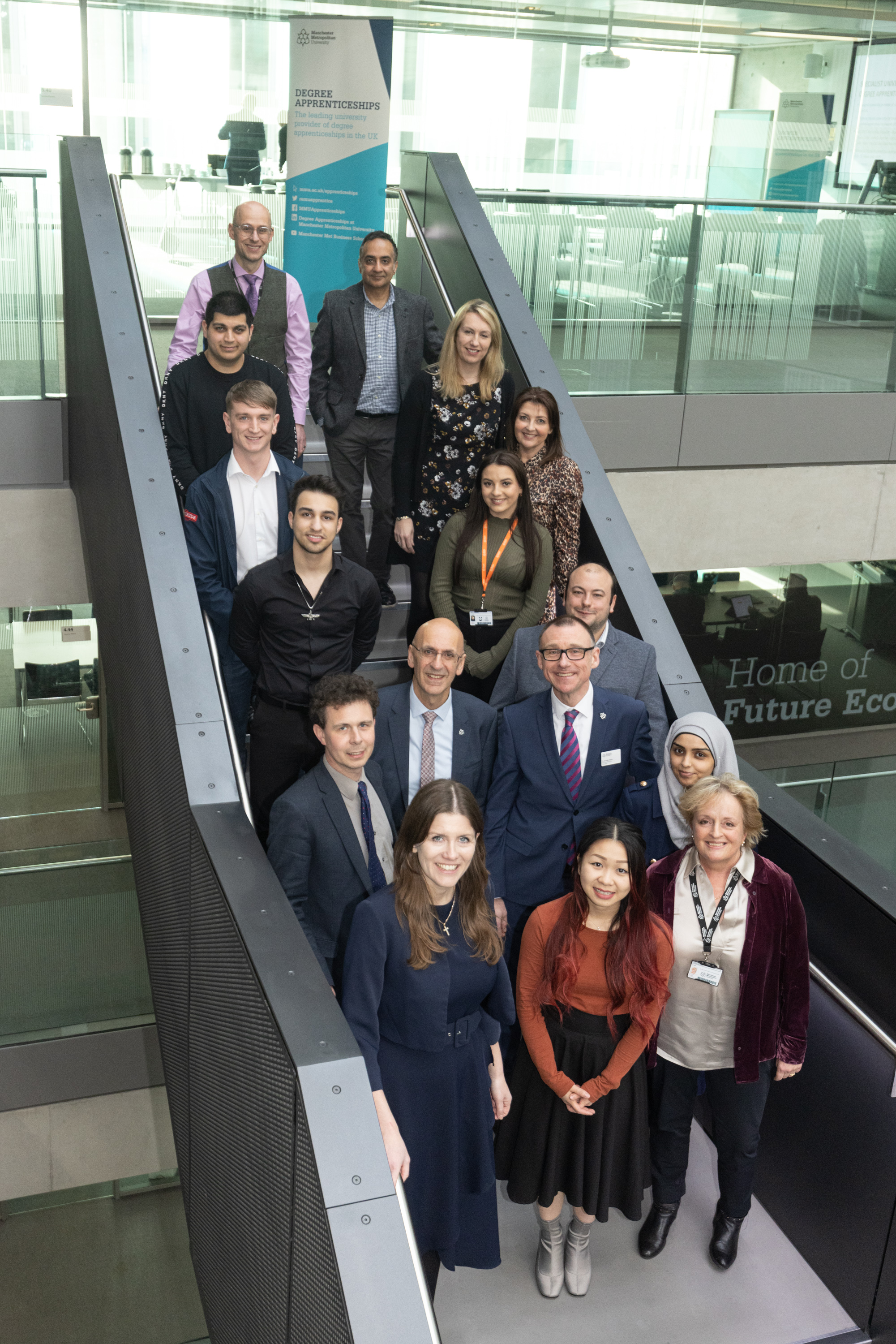
The Minister of State for Higher and Further Education has praised Manchester Met as a blueprint for how degree apprenticeships are delivered.
Michelle Donelan MP visited the University in March and met degree apprentices and employers to learn how the University’s degree apprenticeship programmes support the Government’s levelling up agenda, opening routes into higher education for those who are the first generation in their families to go to university, those seeking to advance their careers later in life and those looking to enter non-traditional career paths.
After touring Manchester Met’s brand new School of Digital Arts, a £35m joint investment with Greater Manchester Combined Authority, the minister enjoyed a demonstration of cutting-edge UX testing which will enable students to shape the next generation of digital design by some of its first Digital User Experience (UX) degree apprentices.
She then met with degree apprentices and major employers, including the Co-Op, Capgemini UK, Ford Mobility Europe, Autotrader and Manchester-based investment services provider, AJ Bell, to explore themes from the University’s Force for Change report.
The report demonstrates how degree apprenticeships broaden career opportunities for students from diverse backgrounds, including those who are ‘first generation,’ BAME or returning to education as they work, and provide alternative routes into STEM for women.
It also found that they play a significant role in supporting the UK skills agenda, helping employers to develop the capabilities they need to succeed today as well as to build a talent pipeline for the future.
Vice-Chancellor Professor Malcolm Press CBE, said: “As a leading UK provider of degree apprenticeships, we are ideally placed to help the Government understand how this innovative route into higher education delivers skilled and ambitious graduates and can enhance life chances for all those with potential.”
Michelle Donelan MP said: “Degree apprenticeships are a growing part of our skills revolution, and I am delighted that the number of apprenticeships with a mandatory degree component has nearly doubled since 2018/19.
“Manchester Metropolitan University gives me confidence that such impressive growth can continue. With more than 2,500 apprentices and over 500 industry partners, the university has set a high bar for degree-level apprenticeships and offers a blueprint for success to other providers.”
Manchester Met is UK’s most sustainable university
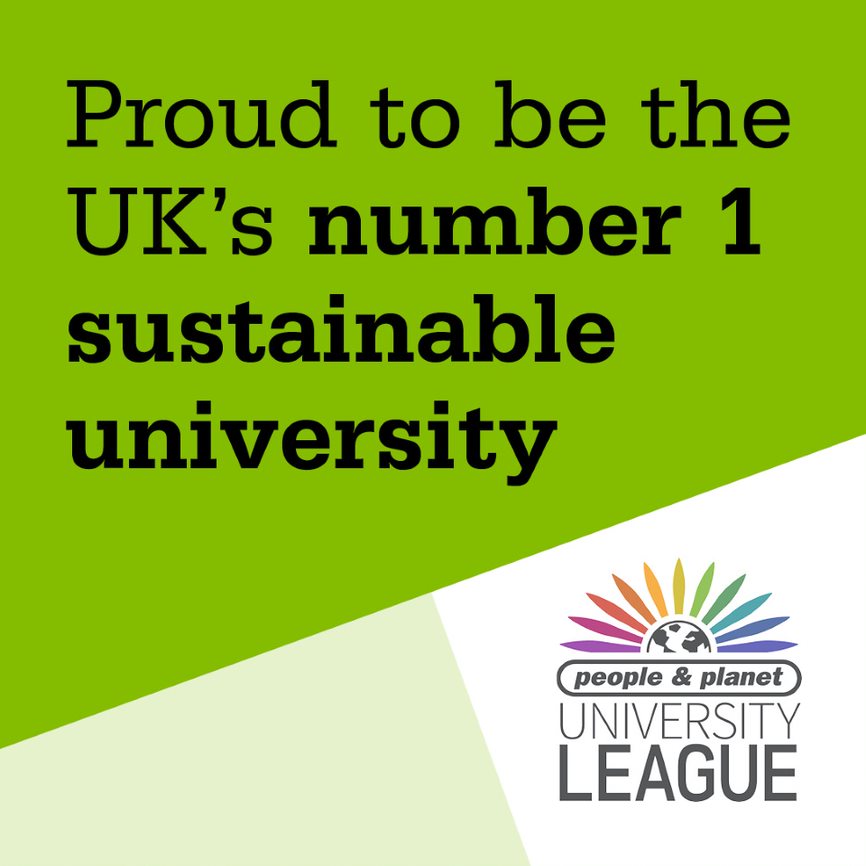
Manchester Met has once again been named as the UK’s most sustainable university to continue its incredible run in the People and Planet University League.
The 2021 league table published in December recognised the University’s commitment to cutting carbon emissions, working towards a zero-carbon future and putting sustainability at the heart of how it operates.
It also celebrates the ongoing delivery of the University’s Carbon Literacy training programme to students, staff and organisations around the UK.
So far, thousands have been trained on how they can make a difference in tackling climate change. Manchester Met has now been ranked as a top three performing university for almost a decade, first achieving a number one position in 2013.
Professor Malcolm Press CBE, Vice-Chancellor said: “We are absolutely delighted that our important work on sustainability has been recognised in this way. Sustainability forms an integral part of everything that we do, from our teaching and research, to the way that we build and use our campus.
“We know that the environment is one of the top concerns for people of all ages and this award demonstrates the pivotal role that sustainability plays in university life at Manchester Metropolitan.”
First Generation wins top Times Higher Education award
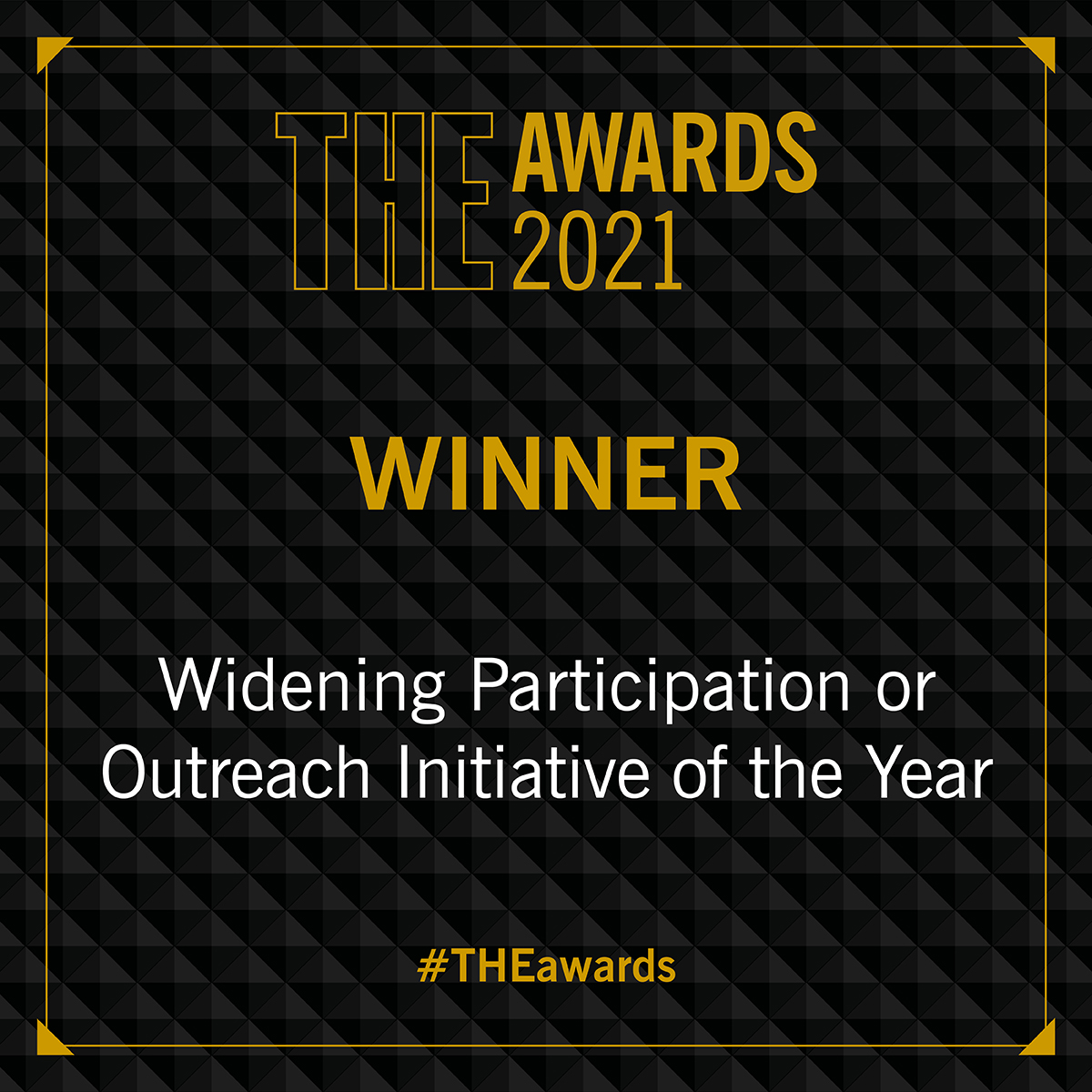
A Manchester Met programme to support students who are the first generation in their family to go to university has been recognised with a prestigious Times Higher Education award.
The First Generation Scholarship Programme, which offers a complete journey of support for young people from Greater Manchester whose parents have no direct experience of higher education, won the Widening Participation and Outreach Initiative of the Year prize.
The Programme gives practical support and application guidance to students in Year 12 and 13 to help them access and then transition to university.
For those who progress through the Programme onto a full-time undergraduate degree at Manchester Met, there is financial and continued personal and professional support throughout their studies.
The Programme is funded by the University and through the generosity of donors. Now in its fourth year, there are almost 300 students on the pre-entry phase of the Programme, and a similar number on courses at Manchester Met, with the first cohort of students having finished their studies and graduated at ceremonies in January 2022.
The aim is to transform 1,000 lives through the Programme by 2025. First Generation successfully attracts those from the most under-represented and deprived groups.
In 2020, 76% of students progressing to Manchester Met on the Programme were from a Black, Asian or minority ethnic background, and 86% were from some of the most deprived areas of England. More than 90% of the students progressed from first year onto their second year, which is more than all comparable groups.
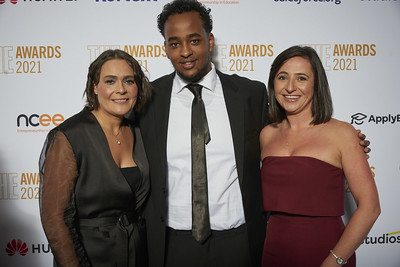
Helen Lord, Recruitment and Widening Participation Manager at the University, said: “We really believe in the work we’re doing through the First Generation Programme, and see first-hand the positive impact it has on the students who take part. It’s a real pleasure to watch them flourish and grow, from college and into university – and now into life after graduation.”
Read more about the First Generation Scholarship Programme in this issue of Met Magazine.
New buildings open their doors
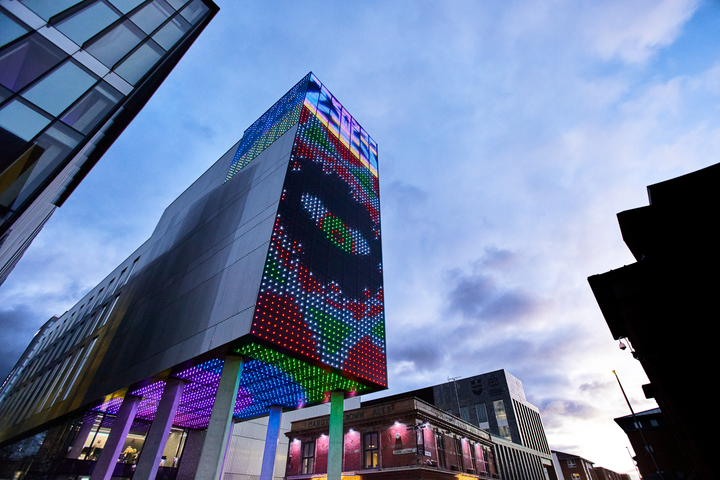
Manchester Met’s new flagship School of Digital Arts (SODA) and Institute of Sport buildings have opened their doors to students, adding to the excellent teaching and learning spaces across the campus.
SODA, a £35m joint venture with Greater Manchester Combined Authority, is a purpose-built, interdisciplinary school providing workspaces, networks, teaching and research.
The School will address the urgent and growing demand for skilled workers in the region’s creative and digital industries. It is delivering courses in media production, film, sound, photography, animation, artificial intelligence (AI) and games design.
The Institute of Sport building hosts four floors of the latest technology and equipment for the advanced study and research of sport, including an MRI scanner and extreme climate environment chamber.
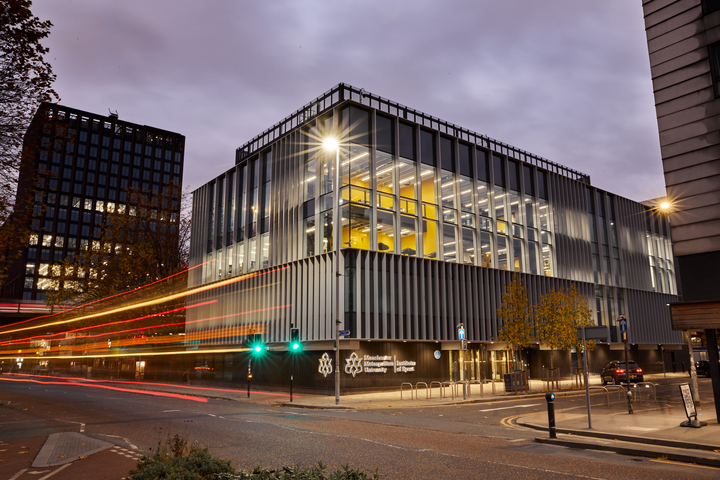
Andrew Fallon, Director of Estates said: “Both new buildings will differentiate our student experience, providing cutting edge study and research spaces, while helping us to meet our campus sustainability targets. “Construction has not been without its challenges during the pandemic, and we thank colleagues for their collaboration over the past two years. As we celebrate the handover of two further stunning places to work and learn, we look forward to the next phase in our estates development.”
Read more about the Institute of Sport in this edition of Met Magazine.
Student receives prestigious Formula 1 scholarship
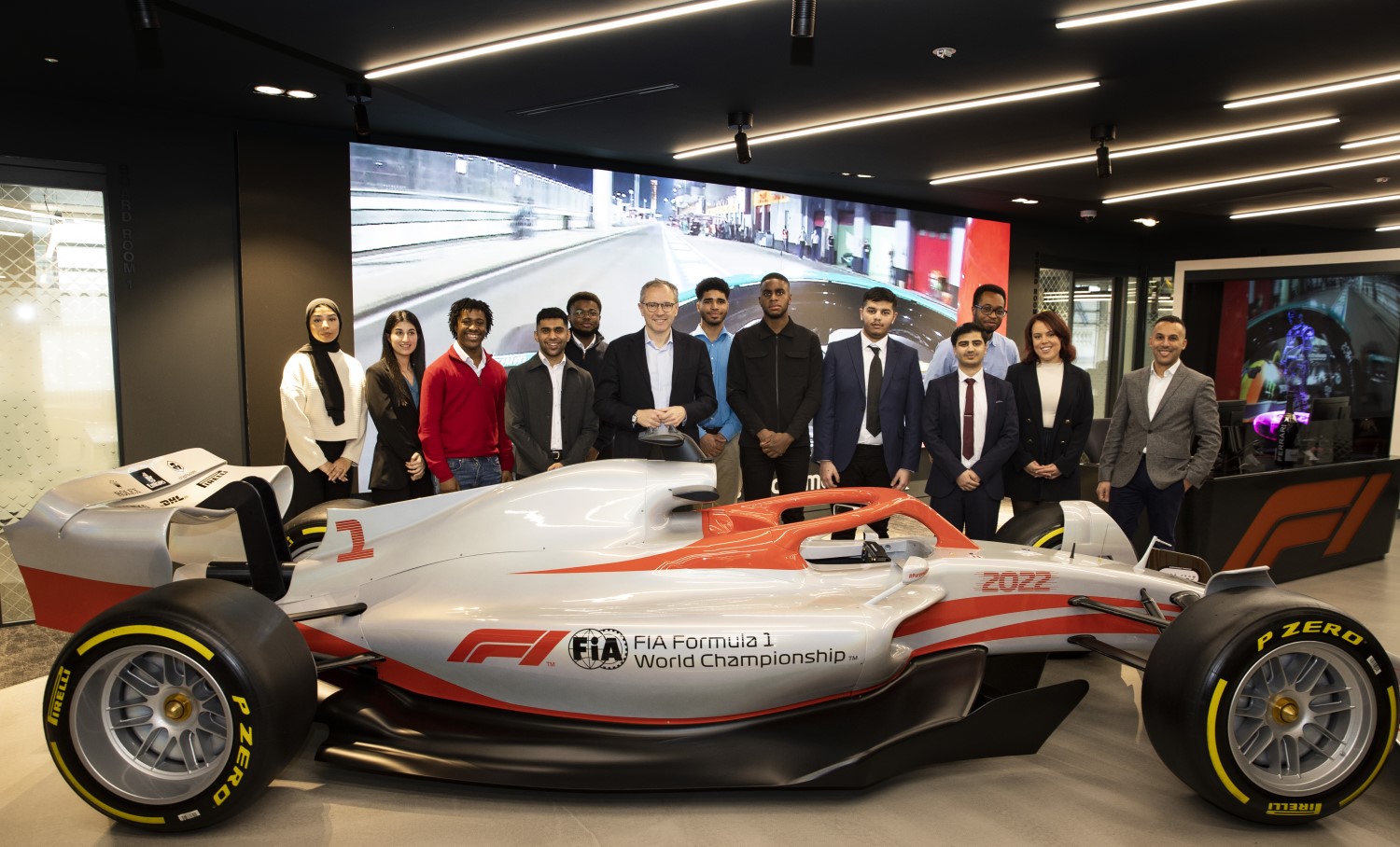
A Manchester Met student is one of a select few to benefit from the prestigious Formula 1 Engineering Scholarship programme.
The University is part of a small group to partner Formula 1 on the scholarship scheme, which is designed to increase diversity from underrepresented groups across motorsport.
They will be supported by a comprehensive financial package covering tuition fees and living costs, as well as the opportunity to intern with a Formula 1 team.
First-year Manchester Met Mechanical Engineering student Hamzah Ali Baig was chosen to receive the scholarship.
Hamzah said: “The Formula 1 scholarship appealed to me because I have long been a fan of the sport, and having this opportunity with them to take me on as a scholar was something I couldn’t pass up. My ambition is to work for a Formula 1 team as a mechanical engineer.”
The Formula 1 Engineering Scholarships were launched last year, following a US$1 million donation from Non-Executive Chairman of Formula 1 Chase Carey.
Stefano Domenicali, President and CEO of Formula 1 said: “We are committed to increasing diversity and opportunity within this incredible sport and I am pleased to confirm that we will be expanding our programme for scholars until 2025, providing fantastic opportunity for some incredibly talented students to begin their journeys with Formula 1.
"We want to continue to ensure that talent from underrepresented groups has meaningful opportunities, with the first 10 scholars already beginning their studies following Chase’s incredible donation to fund the scholars in their first year. We want to continue and build on the foundations of the programme in the years ahead.”
Supporting disabled graduates into employment
Manchester Met is one of two universities to join a new government ‘passport’ pilot scheme that will support disabled students as they move into work.
The Department for Work and Pensions’ (DWP) Access to Work Adjustment Passport will ease the transition from university into employment by reducing the need for repeated health assessments when starting a new job.
The scheme, announced as part of the National Disability Strategy, is now underway at Manchester Met and the University of Wolverhampton.
Through Access to Work, people with disabilities can benefit from grants worth up to £62,900 to cover the cost of specialist equipment needed to support them to do their job.
A passport will be offered to students who already receive extra support while studying at university, capturing information about their condition and the adjustments from which they already benefit, avoiding repetitive disclosures when it comes to applying for the grant once they start work.
Up to 100 students at each university will be supported through the trial, and thousands more could benefit if the scheme is rolled out across the country.
The passport is designed to give holders the confidence to have conversations about their disability and adjustments with potential employers, which can otherwise be challenging.
They will also help to raise awareness of the Access to Work scheme and encourage further uptake.
Minister for Disabled People Chloe Smith said: “Everyone deserves an equal opportunity to thrive at work, starting from the moment they take their first steps on the career ladder.
“By working with University of Wolverhampton and Manchester Metropolitan University on this trial, we can find the best way for these new passports to support their students into employment.
“Access to Work is a fantastic scheme offering financial support to those people who need extra help. Programmes like this, alongside Disability Confident and the over 100 commitments in our National Disability Strategy, will help us get one million more disabled people into work by 2027.”
Lyle Millard, Head of Inclusion and Pastoral Services, at Manchester Met said: “We are proud of the service we offer to our disabled students, and are committed to supporting them from education into employment.
“So we were delighted when we were asked to work with our students to contribute to the pilot and the development of this positive initiative.”
Joint Education Institute launched in China
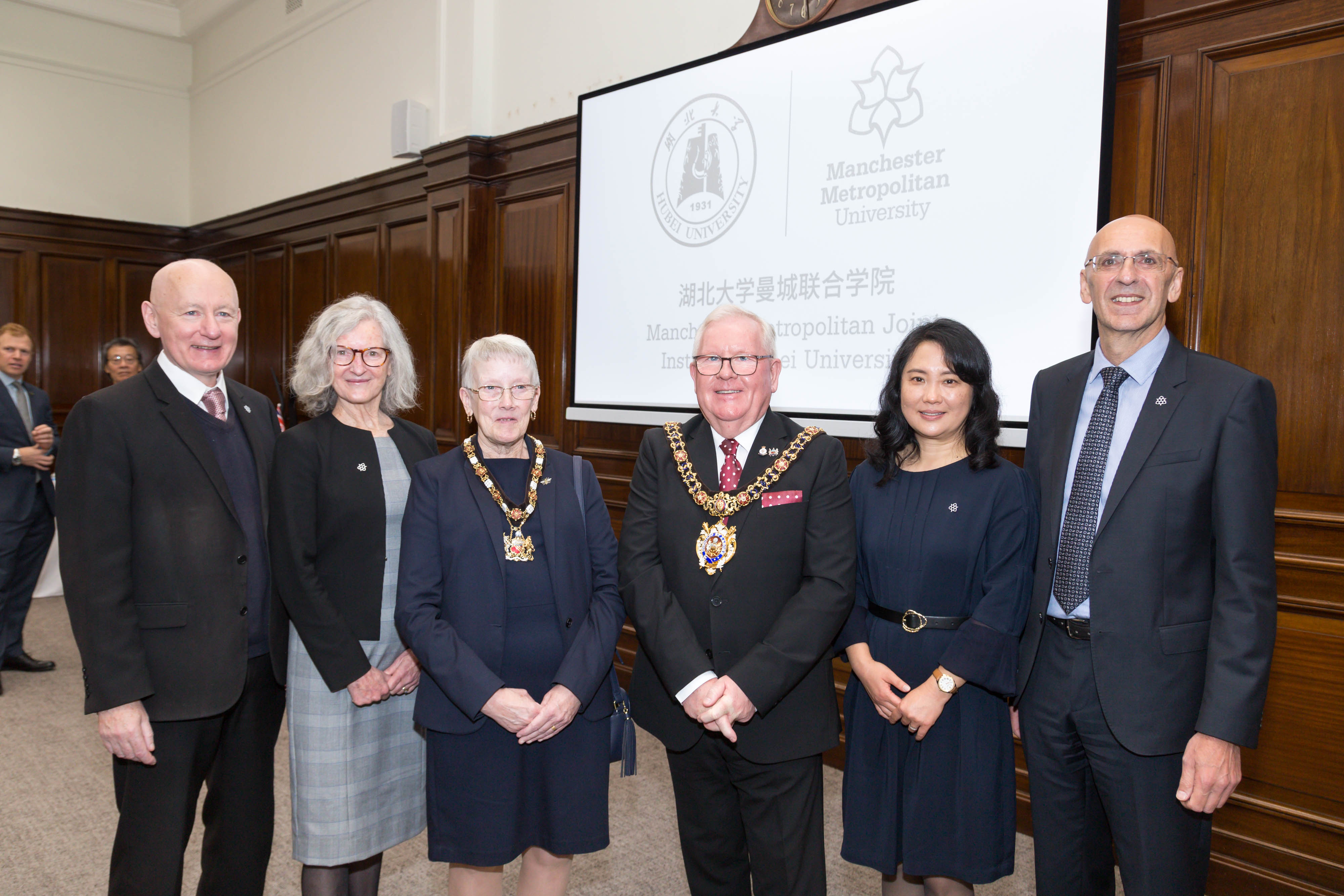
The Manchester Metropolitan Joint Institute, Hubei University has been officially launched to provide new education programmes in Wuhan, China.
Students at the joint institute (JI) will be able to study on three initial science and engineering undergraduate programmes, with further postgraduate programmes to follow next year. Students also have the opportunity to spend part of their degree course studying at Manchester Met.
The JI is the next step in Manchester Met’s plans to build ties with China, increasing the University’s activity in the country and promoting study opportunities in Manchester.
The JI – hosted at Hubei University’s campus – will help to build cultural understanding and collaboration between the two cities, with Manchester Met staff visiting and working at Hubei University alongside JI students.
Hubei University is based in Wuhan, was founded in 1931 and currently has 20,000 students. It builds on the growing partnership between Manchester Met and the city of Wuhan, which is also a twin city of Manchester.
Vice-Chancellor Professor Malcolm Press CBE said: “The official launch of the Joint Institute is the result of a long-standing partnership between Hubei and Manchester Met, allowing us to combine our knowledge, expertise and skills to educate and inspire future generations of students.
“The partnership gives students the opportunity to study in both Wuhan and Manchester, helping to build cultural understanding and significantly enhancing their abilities to thrive in diverse, multicultural environments.
“The launch marks another key milestone for the University’s partnerships in China and Wuhan after the opening of our office in the city last year. We now look forward to further strengthening our academic relationships in the country.”
University pioneering new learning routes
A new sector-leading project led by Manchester Met will improve access to higher education.
The University has been awarded funding from the Office for Students – the independent regulator of higher education in England – to deliver short higher education courses through a Lifelong Loan Entitlement (LLE).
The LLE will enable anybody to access up to four years of student loans to support bite-sized learning courses at Manchester Met.
These short courses will allow people to build up learning over their lifetime with a choice on how and when they want to study and learn new skills.
The Office for Students announced in December that the University will be one of only 22 institutions to deliver the LLE, which is a cornerstone of the Government’s Education White Paper.
The project, which will be delivered from September 2022, will provide access to our award-winning RISE programme (which gives students the opportunity to tailor their studies to learn new skills) with the aim of providing skills to people in employment without a degree, which may see them facing barriers in their career progression.
Dr Mark Peace, Academic Lead for Student Centred Curriculum and the RISE programme, said: “We are really excited to lead on an area of educational development with such obvious social and economic benefits.
“The funding award from the Office for Students is a real vote of confidence in the success of our RISE programme, and the wider University, in driving innovation. We are looking forward to generating exciting and impactful new approaches to help people build their skills and progress in their careers.”
Digital UX degree apprenticeship receives Gold accreditation
Manchester Met’s Digital User Experience (UX) degree apprenticeship programme has gained Tech Industry Gold Accreditation – the industry standard for job readiness.
Delivered by experts in the field at the University’s new £35m School of Digital Arts (SODA), the course is the first of its kind in the country.
It is also the first Digital UX Degree Apprenticeship to gain Tech Industry Gold, the kitemark endorsed by employer skills body TechSkills that denotes education and training relevant to digital and tech careers.
Developed collaboratively with the BBC, digital design specialists Magnetic North and a wide variety of employers from different sectors, the programme is an innovative blend of higher education and work-based learning that enables students to earn while they learn the skills for a successful career in digital UX.
It demonstrates the early impact of SODA, a joint investment by Manchester Met, Greater Manchester Combined Authority and the Greater Manchester Local Enterprise Partnership into the future of digital storytelling, which will support the urgent and growing demand for skilled workers in the region’s creative digital and tech sector.
Jill Griffiths, Deputy Head of SODA, said: “Working in partnership with industry is central to the mission of SODA, and the Digital User Experience (UX) Degree Apprenticeship is a brilliant example of our commitment to offering high quality, innovative and exciting courses that equip apprentices and students with the knowledge, skills and behaviours needed to enrich the creative and digital sectors and be future leaders in their fields.”
New scholarships aim to improve diversity in fashion industry
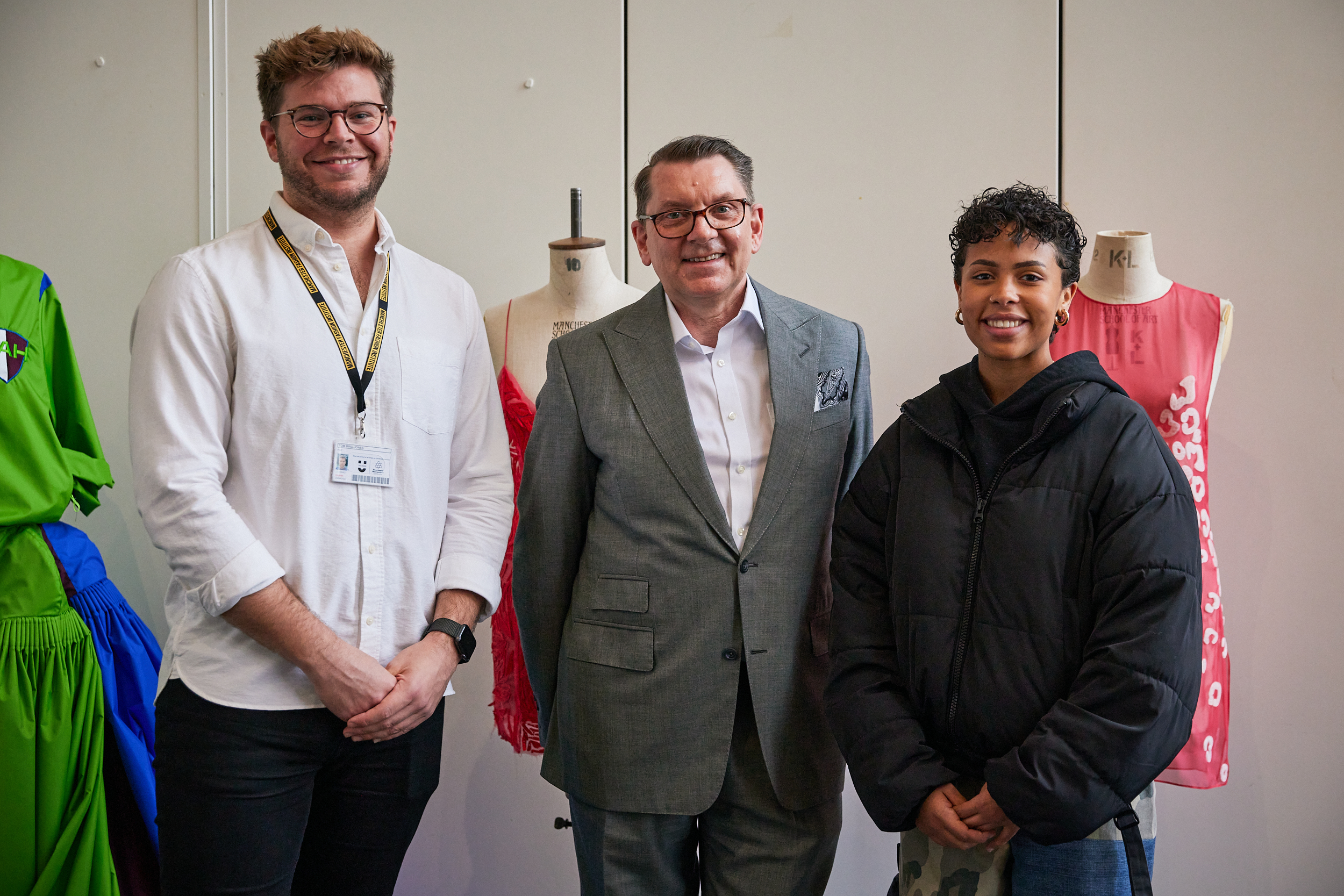
New scholarships funded by fashion brand Max Mara will enable budding designers from underrepresented backgrounds to study fashion at Manchester Met.
The Max Mara Opportunity Scholarships in Fashion will provide funding for six students over three years from Black, Asian and minority ethnic backgrounds, addressing the need to improve racial diversity and inclusivity within the fashion industry.
University fashion alumnus Ian Griffiths, now Creative Director of Max Mara, has supported the creation of the scholarship.
Max Mara, founded in 1951 by the late Achille Maramotti, is renowned as being one of the highest expressions of Italian luxury and style.
Beginning in September and running until 2024, two undergraduates who are enrolled on BA (Hons) Fashion degree each year will receive scholarships to help meet living and study costs. Manchester Met admits more students from low-income households than any other university in the UK.
In addition, around 50% of our UK undergraduate students are among the first of their family to progress to higher education and over a third of the student body identify as coming from a Black, Asian or minority ethnic background.
The scholarships recognise the need to provide financial support, clear career pathways and access to professional networks for underrepresented communities in the creative subjects, including fashion.
Griffiths said: “Let’s talk about the culture of fashion. At street level, it’s hugely enriched by the participation of Black, Asian and minority ethnic communities, but on a structural level their voices are largely absent. At Max Mara we have always thought that communities that the brand seeks to engage with need to recognise themselves within the overall brand identity: so it’s time to open up the culture of fashion. These scholarships will open the door and develop the full potential of talent which might otherwise be missed.”
University announced as partner in GCHQ initiative
Manchester Met is one of four universities joining with GCHQ to create a ‘Security and Trust Partnership’ in the North West that will see closer ties with academia.
In a first for the intelligence, cyber and security agency, the new partnership will see GCHQ publish its own research jointly with the universities.
Previously all research written by the intelligence services has been kept within national security circles only.
This partnership will allow research and knowledge related to national security issues to be shared more widely in order to help further the UK’s science capabilities, enabling faster innovation in a range of strategic areas including technology, behavioural sciences and criminology.
This approach will allow the agency to tap into fresh perspectives from across the institutions, to bring creative thinking to national security priorities to enhance the safety, security and prosperity of British citizens.
The institutions involved in the pilot partnership with GCHQ are Manchester Met, Lancaster University, the University of Manchester and the University of Salford.
GCHQ’s Director General for Technology, Gav Smith said: “Working more collaboratively with key partners, like universities, is crucial for the future of the intelligence services.
“It allows us to combine the expertise and perspectives from across sectors to innovate faster and more effectively to meet the challenge of an increasingly complex set of national security challenges.”
Rob Aspin, Professor of Extended Reality at Manchester Met, added: “Manchester Met not only brings extensive expertise in artificial intelligence and cyber security, along with the broader digital domain that will be core to the partnership’s activity, but also offers a range of additional research expertise spanning humanities and arts that will aid in the contextualisation and diverse community trust that will be a key feature of the partnership.”
In addition to creating stronger links with universities, the agency hopes to attract a more diverse workforce by encouraging students from courses involving subjects such as computer science, maths, behavioural science, criminology and linguistics to consider careers with the UK intelligence community.
This latest announcement is one of a series of academic collaborations led by the agency. Last year it announced funding for five academics through its Research Fellowship Programme for National Resilience.
The scheme offers applicants from academia, science and industry the opportunity to work with GCHQ on some of the biggest national security challenges with successful applicants including academics working on counterterrorism and cyber security.
